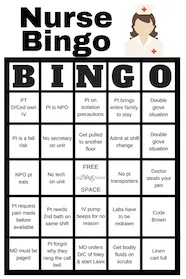A nurse anesthetist is a specialized professional who administers anesthesia to patients before and during surgical procedures. These advanced practice nurses participate in the highly specialized and intricate task of maintaining the delicate balance of keeping a patient safely unconscious, pain-free, and stable throughout a medical procedure.
If you want to learn how to become a nurse anesthetist, this article is for you.
Table of Contents
What Does a Nurse Anesthetist Do?
It is essential to examine the patient’s medical history and current health status to identify any potential issues that could affect the anesthesia. So, a Nurse Anesthetist plays a vital role in developing precise anesthesia plans before surgery, and in administering anesthesia during and after the surgery.
Because every situation is unique, anesthesia must be tailored and delivered specifically for the patient and procedure.
There are 3 main types of Anesthesia:
- General Anesthesia (for complete unconsciousness)
- Regional Anesthesia (for numbing of specific areas)
- Local Anesthesia (for numbing small, localized regions)
The specific type and dosage of anesthesia depend on the nature of the procedure and the patient’s individual needs, all of which are carefully assessed and managed by skilled anesthetists.
What is a CRNA?
CRNA is both a certification and a job title rolled into one. Firstly, those interested in becoming a CRNA have to obtain a degree in nursing. Those nurses have to undergo intensive specialized training in a Nurse Anesthesia Program. Finally, they have to pass the National Certification Examination (NCE) by the National Board of Certification and Recertification for Nurse Anesthetists (NBCRNA) to obtain their state license to proudly call themselves Certified Registered Nurse Anesthetists (CRNAs).
This designation allows them to provide anesthesia. They usually have a master’s degree in nurse anesthesia, but first and foremost, they are nurses. Some nurses who become CRNAs may have a DNP (a doctoral degree). They are the ones who handle anesthesia, give it, and keep a close eye on patients during surgeries and medical procedures.
Can a CRNA administer anesthesia without an anesthesiologist?
The ability of CRNAs to practice autonomously varies from state to state. According to Texas Wesleyan University:
CRNAs have similar responsibilities as anesthesiologists, such as prescribing medicine and ordering diagnostic tests. In some states they must work with a supervising board-certified physician. Fifteen states have done away with the law requiring nurse anesthetists to work under a physician.
via CRNA vs. Anesthesiologist: What’s the Difference?
Steps to Become a Nurse Anesthetist | CRNA
To become a future Certified Registered Nurse Anesthetist (CRNA), careful planning and dedication are essential. Your success hinges on a well-structured and diligent approach to education and training, because it requires several years of preparation and strenuous course and clinical work to become a CRNA.
Time Required to Become a CRNA
Most can become a CRNA in about 8 years. This includes all the time in nursing school, a couple of years working as a nurse, and 2-3 years in CRNA school.
The absolute fastest time to become a Certified Registered Nurse Anesthetist (CRNA) takes 7-8 years in a perfect world. There is no quick way to become a CRNA in 4-5 years. However, it is possible to decrease the amount of time you spend becoming a CRNA if you do everything in order and do everything right away.
Here’s a breakdown of the years of education and experience needed to become certified:
Undergraduate Education (BSN): 4 years
First, you’ll need to complete a Bachelor of Science in Nursing (BSN) or a related undergraduate degree. This typically takes four years.
Registered Nurse (RN) Licensure: Varies
After earning your BSN, you must pass the NCLEX-RN exam to become a licensed RN. The time it takes to prepare for and pass this exam can vary.
Clinical Experience: 1-2 years
Gain clinical experience as an RN, usually in a high-acuity setting such as an Intensive Care Unit (ICU). This experience typically takes one to two years. This experience is different than the clinical training you receive in nursing school. It is typically required for most CRNA programs.
Master’s Degree (MSNA) in Nurse Anesthesia: 2-3 years
Enroll in CRNA school and complete a Master of Science in Nurse Anesthesia (MSNA) program accredited by the Council on Accreditation of Nurse Anesthesia Educational Programs (COA). The duration of the MSNA program is typically 2 to 3 years.
Certification Exam Preparation: Varies
Prepare for the National Certification Examination (NCE) administered by the National Board of Certification and Recertification for Nurse Anesthetists (NBCRNA).
The time spent preparing for the exam can vary based on individual study habits and the program’s curriculum.
Take the Self-Evaluation Examination (SEE): 1 Day
Before embarking on the National Certification Examination (NCE) journey, the National Board of Certification and Recertification for Nurse Anesthetists (NBCRNA) advises candidates to undertake the Self-Evaluation Examination (SEE). It’s a common practice among nurse anesthesia programs to incorporate the SEE into their curriculum. The SEE serves three fundamental purposes:
- It is a progress tracker for students in their nurse anesthesia education journey.
- It offers valuable insights to program administrators regarding the efficacy of their programs in equipping students with essential anesthesia practice knowledge.
- It familiarizes students with the NCE setup, helping alleviate examination jitters.
The SEE is structured as a 240-question computerized adaptive test, encompassing a variety of question formats, including multiple-choice, multiple-correct responses, short answer/calculations, drag and drop, and hotspot questions. This voluntary self-assessment is crucial in setting a solid groundwork for the NCE. To delve deeper into what the SEE encompasses, the SEE Handbook is a great resource.
Certification Exam (NCE): 1 Day
Take and pass the NCE.
State Licensure: Varies
After passing the NCE, obtain state licensure as a CRNA. The process and timeline for state licensure can vary from state to state.
Total Time Required to Become a CRNA: 7-9 Years
In total, the path to becoming a CRNA typically takes around 7 to 9 years from the start of your undergraduate education to achieving full CRNA licensure. This timeline can vary based on factors such as the length of your MSNA program, the time it takes to gain clinical experience, and individual circumstances. Additionally, some individuals may pursue a Doctor of Nursing Practice (DNP) in Nurse Anesthesia, which would add additional time to their education and training.
Best ICU Experience for CRNA School
CRNA school requirements are based specifically on what school you are looking into. So you need to research the school you are interested in. Even if you are applying to more than one school, you must research thoroughly to see if there is any difference between their ICU requirements. However, some preferred ICU experiences can be a plus in securing your position in top-notch CRNA schools.
Preferred ICU Experience
The best unit to gain experience for any CRNA school is really any adult ICU. Always try to be in a critical care setting, which offers you an opportunity to develop as an independent decision-maker, capable of using and interpreting advanced monitoring techniques, caring for ventilated patients, and involves pharmacologic hemodynamic management based on the knowledge of your physiological and pharmacological principles.
Get at least 1 year of experience (2 years preferred) in a critical care setting such as:
- Intensive Unit
- Surgical Intensive Care
- Medical Intensive Care
- Cardiac Intensive Care
- Neuro Intensive Care
- Pediatric or Level III Neonatal Intensive Care Unit
- Trauma Intensive Care
A Speciality Certification Can Help
Getting into a nurse anesthetist program is highly competitive. Doing the minimum is likely not going to secure your spot. Obtaining a specialty certification in your field, such as a CCRN certification, could be helpful. While not required, it is often strongly encouraged to boost your enrollment chances.

NICU/PICU or ER Experience for CRNA school
The most common unit that people don’t realize is not considered ICU in a lot of settings is ER experience. Medical professionals and nurses often lump emergency department experience in with critical care experience. However, in CRNA school that does not always apply.
As part of the admissions FAQ, The University of Chattanooga states this in regards to what qualifies as critical care experience for the CRNA program:
As defined by the COA, critical care experience must be obtained in a critical care area within the United States, its territories or a US military hospital outside of the United States. During this experience, the registered professional nurse has developed critical decision making and psychomotor skills, competency in patient assessment, and the ability to use and interpret advanced monitoring techniques. A critical care area is defined as one where, on a routine basis, the registered professional nurse manages one or more of the following: invasive hemodynamic monitors (e.g., pulmonary artery, central venous pressure, and arterial catheters), cardiac assist devices, mechanical ventilation, and vasoactive infusions. Examples of critical care units may include but are not limited to: surgical intensive care, cardiothoracic intensive care, coronary intensive care, medical intensive care, pediatric intensive care, and neonatal intensive care. Those who have experiences in other areas may be considered provided they can demonstrate competence with managing unstable patients, invasive monitoring, ventilators, and critical care pharmacology.
CRNA schools determine whether something qualifies as critical care experience on an individual basis, so reach out to your preferred school early on to confirm what they consider acceptable. Sometimes, NICU and PICU don’t count because they are considered a very specialized ICU type of experience. And if they do accept PICU, then it is possible that they don’t accept NICU.
You get the picture!
Based on common standards, gain experience by being exposed to high-acuity cases and advanced life support, and have hands-on experience with different hemodynamic monitoring systems. These requirements ensure that you are well-prepared to tackle the complexities of anesthesia with skill and assurance.
Average Salary of a Certified Registered Nurse Anesthetist
How much you make as a Certified Nurse Anesthetist can depend on many factors. These include your education, certifications, extra skills you’ve obtained, your geographic location, and, most importantly, how long you’ve been on this journey.
However, in the US, the typical salary for a Certified Nurse Anesthetist is around $249,381 as of September 25, 2023. But this number can swing based on the state you are living in, usually falling between $187,158 and $284,772.
Here is the average annual salary of Certified Registered Nurse Anesthetists across the 50 states of the US.
| # | State | Hourly Wage | Monthly Pay | Annual Salary |
| 1. | New Jersey | $136.91 | $23,731 | $284,772 |
| 2. | Wisconsin | $135.46 | $23,479 | $281,757 |
| 3. | Nevada | $131.33 | $22,764 | $273,173 |
| 4. | Massachusetts | $130.58 | $22,633 | $271,601 |
| 5. | Minnesota | $129.90 | $22,516 | $270,199 |
| 6. | Oregon | $128.97 | $22,354 | $268,259 |
| 7. | Hawaii | $127.08 | $22,026 | $264,320 |
| 8. | Washington | $125.76 | $21,799 | $261,588 |
| 9. | New York | $125.08 | $21,679 | $260,159 |
| 10. | Iowa | $124.37 | $21,556 | $258,682 |
| 11. | Alaska | $124.22 | $21,531 | $258,374 |
| 12. | New Mexico | $122.76 | $21,277 | $255,333 |
| 13. | Cennecticut | $121.99 | $21,144 | $253,734 |
| 14. | Rhode Island | $121.82 | $21,115 | $253,382 |
| 15. | South Dakota | $121.43 | $21,048 | $252,584 |
| 16. | North Dakota | $121.34 | $21,032 | $252,394 |
| 17. | Ohio | $121.20 | $21,008 | $252,104 |
| 18. | Tennessee | $118.64 | $20,564 | $246,770 |
| 19. | Utah | $117.95 | $20,445 | $245,343 |
| 20. | California | $117.25 | $20,323 | $243,879 |
| 21. | Illinois | $115.47 | $20,014 | $240,169 |
| 22. | Virginia | $112.77 | $19,546 | $234,561 |
| 23. | Maryland | $112.75 | $19,542 | $234,510 |
| 24. | Mississippi | $112.72 | $19,538 | $234,259 |
| 25. | Vermont | $111.84 | $19,384 | $232,618 |
| 26. | Delaware | $111.13 | $19,263 | $231,157 |
| 27. | Colorado | $111.06 | $19,251 | $231,013 |
| 28. | Kansas | $108.33 | $18,777 | $225,333 |
| 29. | Louisiana | $108.31 | $18,773 | $225,286 |
| 30. | Maine | $107.28 | $18,594 | $223,135 |
| 31. | Oklahoma | $107.14 | $18,571 | $222,852 |
| 32. | Wyoming | $107.09 | $18,562 | $222,754 |
| 33. | South Carolina | $107.04 | $18,553 | $222,641 |
| 34. | Indiana | $106.62 | $18,480 | $221,766 |
| 35. | Arizona | $106.58 | $18,474 | $221,694 |
| 36. | Michigan | $106.22 | $18,411 | $220,941 |
| 37. | Missouri | $105.40 | $18,268 | $219,224 |
| 38. | Georgia | $104.78 | $18,161 | $217,935 |
| 39. | Pennsylvania | $104.66 | $18,141 | $217,695 |
| 40. | New Hampshire | $104.29 | $18,076 | $216,921 |
| 41. | Texas | $104.06 | $18,037 | $216,449 |
| 42. | Montana | $102.26 | $17,724 | $212,691 |
| 43. | Nebraska | $102.19 | $17,712 | $212,547 |
| 44. | Idaho | $100.96 | $17,499 | $209,990 |
| 45. | Kentucky | $98.90 | $17,142 | $205,711 |
| 46. | North Carolina | $97.73 | $16,940 | $203,280 |
| 47. | Arkansas | $97.08 | $16,826 | $201,921 |
| 48. | West Virginia | $90.18 | $15,631 | $187,578 |
| 49. | Alabama | $90.07 | $15,612 | $187,351 |
| 50. | Florida | $89.98 | $15,596 | $187,158 |
It’s no surprise that CRNAs are some of the highest paid nurses in the United States. I guess they won’t need to work any side hustles.
10 Best CRNA Schools
A top CRNA (Certified Registered Nurse Anesthetist) school is characterized by many key factors. Therefore, selecting the best CRNA school involves thorough research and consideration of those factors to ensure you receive a high-quality education and the best preparation for your career in nurse anesthesia. These key factors include:
- COA accreditation
- Experienced faculty in anesthesia practice
- Diverse clinical experience
- High pass rates in NCE
- State-of-the-art resources and facilities
- Advanced research opportunities
- Low faculty-to-student ratio
- Reputation among employers
- Alumni success
- Access to financial aid and scholarships
Based on these key factors, we have listed down the 10 best schools to become a successful CRNA.
- Virginia Commonwealth University – Richmond, VA
- Baylor College of Medicine – Houston, TX
- Duke University – Durham, NC
- Kaiser Permanente School of Anesthesia – California State University – Fullerton, CA
- Rush University – Chicago, IL
- Uniformed Services University of the Health Sciences – Bethesda, MD
- University of Pittsburgh – Pittsburgh, PA
- The University of Texas Health Science Center – Houston, TX
- U.S. Army Graduate Program in Anesthesia Nursing – Fort Sam Houston, TX
- Georgetown University – Washington, DC
By choosing one of the top CRNA schools, you’ll be on a path to receiving the best education, and setting yourself up for a successful career.
Is Becoming a CRNA Worth It?
This article outlined the overall picture of a potential CRNA journey. In pursuing this career, remember that dedication, commitment, and a passion for providing anesthesia care are the key. Although it’s demanding and rigorous, it’s doable. So, with the right direction and preparation, you can look forward to a fulfilling and well-compensated career as a Certified Anesthetist.
Whether it’s worth it is entirely subjective. However, I have never met an unhappy CRNA. They have excellent career stability with strong employment rates, high earning potential, and a strong career outlook. Unless you decide to do something completely different than practicing as a nurse anesthetist after you become a CRNA, this nerdy nurse would say that becoming a CRNA is definitely worth it.
Are you pursuing a CRNA or thinking about it? Feel free to share your experience in the comments below, so everyone who stumbles upon this article can benefit from your wisdom!
FAQs
What is a CRNA?
CRNA is both a certification and a job title rolled into one. Firstly, those interested in becoming a CRNA have to obtain a degree in nursing. Those nurses have to undergo intensive specialized training in a Nurse Anesthesia Program. Finally, they have to pass the National Certification Examination (NCE) by the National Board of Certification and Recertification for Nurse Anesthetists (NBCRNA) to obtain their state license to proudly call themselves Certified Registered Nurse Anesthetists (CRNAs).
This designation allows them to provide anesthesia. They usually have a master’s degree in nurse anesthesia, but first and foremost, they are nurses. Some nurses who become CRNAs may have a DNP (a doctoral degree). They are the ones who handle anesthesia, give it, and keep a close eye on patients during surgeries and medical procedures.
How long does it take to become a CRNA?
Most can become a CRNA in about 8 years. This includes all the time in nursing school, a couple of years working as a nurse, and 2-3 years in CRNA school. The absolute fastest time to become a Certified Registered Nurse Anesthetist (CRNA) takes 7-8 years in a perfect world. There is no quick way to become a CRNA in 4-5 years. However, it is possible to decrease the amount of time you spend becoming a CRNA if you do everything in order and do everything right away.
What kind of ICU experience is preferred for CRNA school?
The best unit to gain experience for any CRNA school is really any adult ICU. Always try to be in a critical care setting, which offers you an opportunity to develop as an independent decision-maker, capable of using and interpreting advanced monitoring techniques, caring for ventilated patients, and involves pharmacologic hemodynamic management based on the knowledge of your physiological and pharmacological principles.
What is the average salary for a CRNA?
How much you make as a Certified Nurse Anesthetist can depend on many factors. These include your education, certifications, extra skills you’ve obtained, your geographic location, and, most importantly, how long you’ve been on this journey.
However, in the US, the typical salary for a Certified Nurse Anesthetist is around $249,381 as of September 25, 2023. But this number can swing based on the state you are living in, usually falling between $187,158 and $284,772.
Download Nurse Bingo Today!

Liven up any shift with a fun game of bingo. See who can fill a row first!
Fill a whole card and lose grip with reality.
Your privacy is protected. We will never spam you.




![Nurse practitioner or doctor of nursing practice? [infographic] 5 Nurse Practitioner or Doctor of Nursing Practice? [Infographic]](https://thenerdynurse.com/wp-content/uploads/2013/06/NursePractitioner.jpg.webp)

